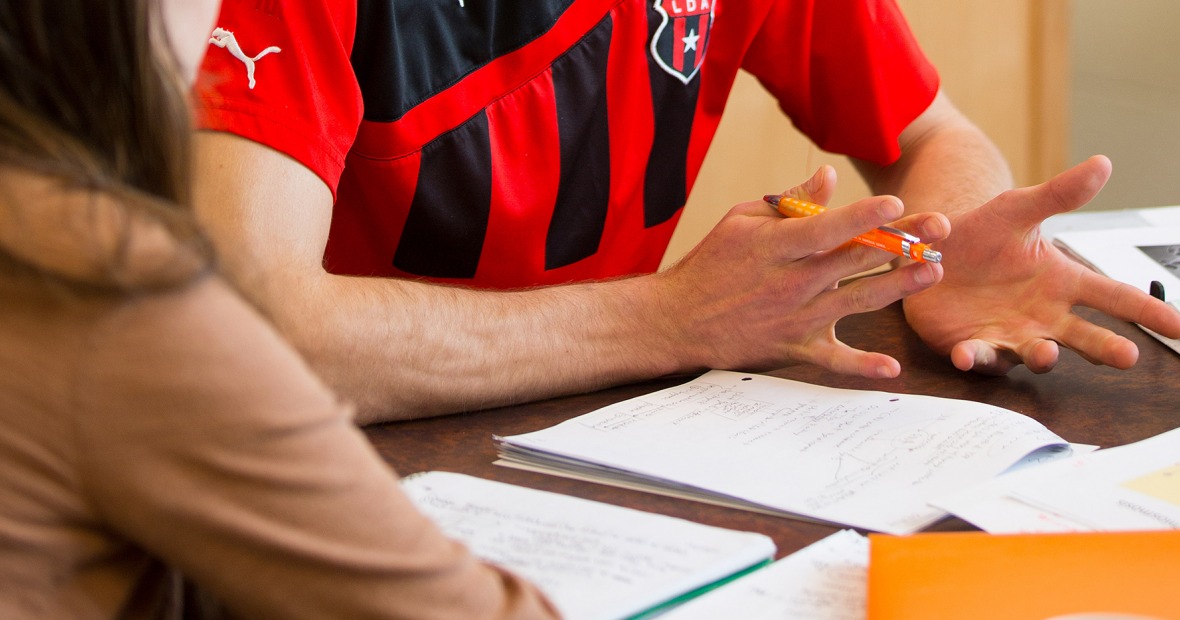Asking for Help
“One of the most important things for Grinnell students is to get past the idea that adults are completely independent,” says Joyce Stern ’91, dean for student success and academic advising. “Adults are constantly consulting each other when they run into a challenge.”
While this advice might seem counterintuitive, it might be the first step in making more out of your time in college. When you arrive at Grinnell, a whole new world of independence is opened up to you. Suddenly, you have almost complete freedom in your social life, extracurriculars, and even your academics. You get to choose what clubs to join, which classes to take, when to study, and who you want to go to dinner with each night.
For many students, seeking help during high school means you’re doing badly or falling behind. But at Grinnell, using all the resources at your fingertips is part of what it takes to succeed! By choosing to come to Grinnell, you choose to ramp up your game. You could go someplace easy. You could shoot for the easy A, but instead you choose to challenge yourself. You’re smart, hard-working, motivated, and you’re very successful.
As a smart, successful student, you’re looking to make the most out of your investments. That includes making use of all the resources designed to support you when you take risks, save you time and energy, or get you back on track quickly when, inevitably, real life comes up and kicks you in the pants, which you know it will do at some point in your college years!
“We expect that all Grinnell students can handle this place,” Stern says. “You’re admitted with great credentials, but there are still things that get in students’ way.” Things such as difficulty adapting to professors’ standards, social anxiety, the death of a loved one, or struggles with time management can all have a big effect on your college experience.
The Academic Advising office can connect you with resources all around campus, from tutoring and counseling services to project planning worksheets and appointments at the Reading, Writing, or Math Labs. The staff at Academic Advising is there for you, to make sure that you get whatever you need to advance in your academics and build the life you want for yourself.
So when should you seek support? According Stern, there’s no such thing as “too early,” and there’s also no “too late.”
“We love to work with students who are simply trying to find a better approach to their studies. Students can and should approach us before the first sign of difficulty,” says Stern.
But even if you wait until you’re already having trouble, Academic Advising can still help.
“We know that people are only able to use good information when they are ready to do so, and even if we can’t help a student salvage a class or the semester, our work together could make the next semester go much better,” Stern says.
Seeking help isn’t a sign that you’re “not making it,” it’s a sign that you’re willing to challenge yourself and give yourself the best possible chance to succeed. So if you’re curious about finding new ways to study, if you’re struggling with a class, or if you’re simply curious about what’s available to you, Academic Advising is here for you!
For more information or to schedule an appointment, check out the Academic Advising website.

